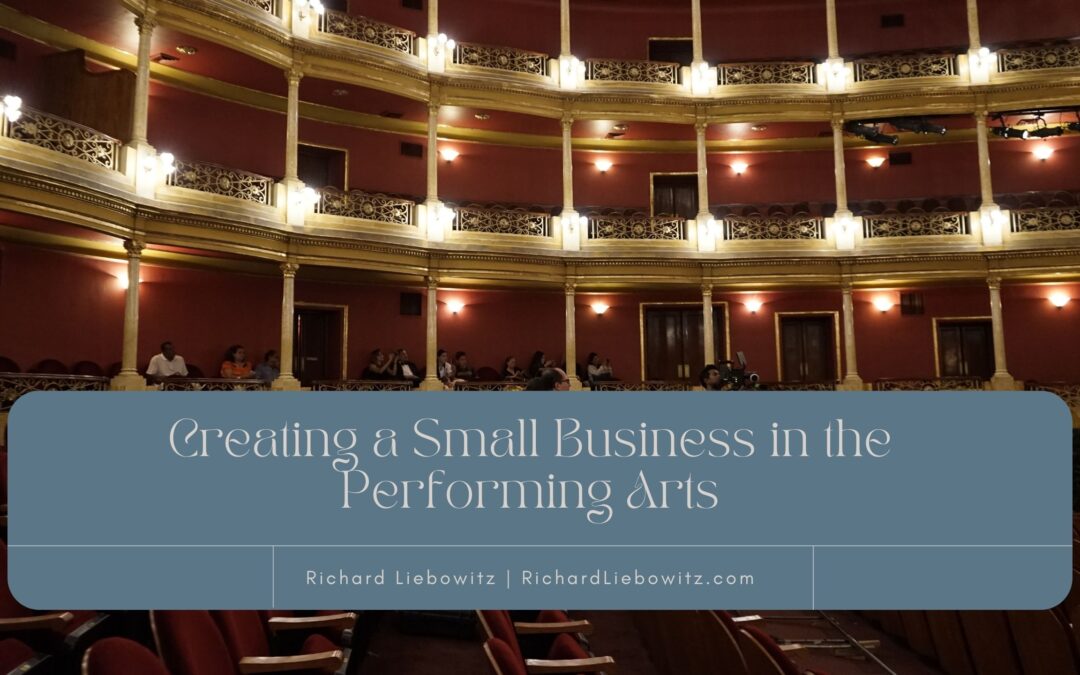For those passionate about the performing arts, turning that passion into a small business can be a fulfilling and rewarding endeavor. Whether you’re a dancer, musician, actor, or any other type of performer, creating a small business allows you to showcase your talent, connect with audiences, and generate income from your art. From defining your artistic vision to building a brand and marketing your services, these insights will help you lay a strong foundation for your artistic venture.
Define Your Artistic Vision and Niche
Before starting a small business in the performing arts, it’s essential to define your artistic vision and identify your niche. Consider the type of performances you want to offer, your target audience, and the unique value you bring to the table. Understanding your artistic identity will help shape your brand and differentiate you from competitors. Take time to research the market, analyze trends, and identify gaps or opportunities where your talents can shine.
Establish a Business Structure and Legal Requirements
Choosing the right business structure is crucial for legal and financial purposes. Consult with an attorney or accountant to determine whether a sole proprietorship, partnership, LLC or another structure suits your needs. Register your business with the appropriate government authorities and obtain any necessary licenses or permits for operating in the performing arts industry. Consider obtaining liability insurance to protect your business and personal assets.
Build Your Brand and Online Presence
Building a strong brand is essential for attracting clients and establishing credibility. Develop a compelling brand identity that reflects your artistic style, values, and unique selling points. Create a professional website that showcases your portfolio, services, and contact information. Leverage social media platforms to engage with your audience and promote upcoming performances or events. Consistency in branding across all channels will help you build recognition and attract a loyal following.
Network and Collaborate
Networking and collaboration are essential for growth in the performing arts industry. Attend industry events, workshops, and performances to connect with other artists, producers, and potential clients. Seek out collaboration opportunities with other performers, production companies, or local arts organizations. By building a network and forming collaborative relationships, you can expand your reach, learn from others, and access new opportunities for performances, partnerships, and exposure.
Market Your Services and Performances
Effective marketing is crucial for attracting clients and filling seats at your performances. Develop a comprehensive marketing strategy that includes online and offline tactics. Utilize social media platforms, email marketing, and content creation to engage with your audience and promote your services. Consider offering free or discounted performances to build buzz and attract new fans. Collaborate with local media outlets or influencers for coverage and exposure. Additionally, maintain a mailing list to keep your audience informed about upcoming shows and events. Word-of-mouth and positive reviews from satisfied clients can also be powerful marketing tools.
Financial Management and Sustainability
Managing your finances effectively is vital for the sustainability of your small business. Keep accurate records of your income and expenses, and maintain a budget to ensure profitability. Set fair pricing for your services, taking into account your experience, demand, and market standards. Consider diversifying your revenue streams by offering workshops, teaching classes, or providing private lessons. Reinvest a portion of your earnings back into your business for marketing, professional development, and equipment upgrades.
Creating a small business in the performing arts industry allows you to turn your artistic passion into a sustainable venture. By defining your vision, building your brand, networking, and implementing effective marketing strategies, you can thrive as a performer, connect with your audience, and make a living doing what you love.

